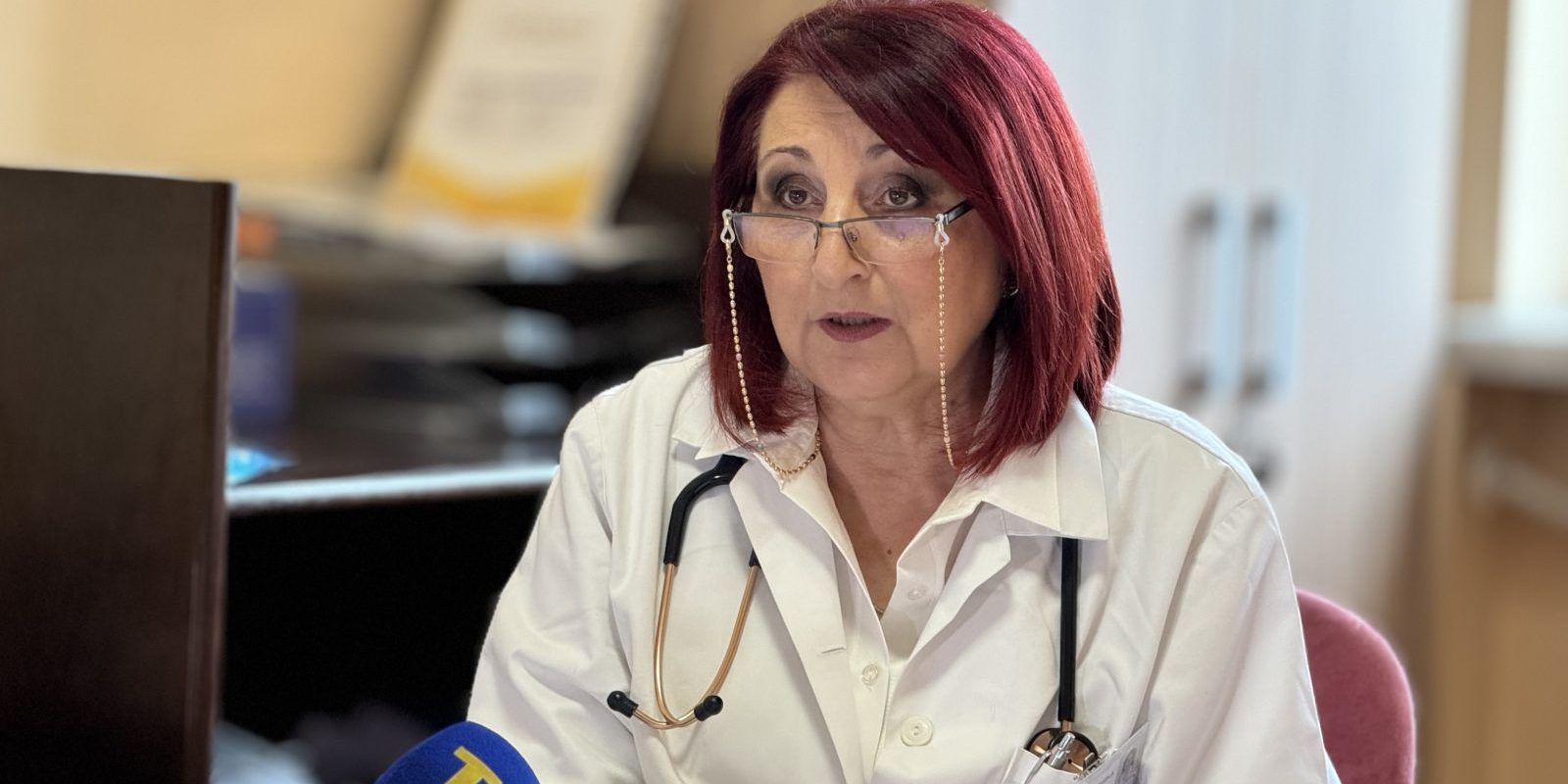As part of its continuous efforts to modernize and enhance healthcare services, the University Clinical Center Tuzla (UKC Tuzla) consistently invests in state-of-the-art medical equipment and professional staff training.
One of the latest advancements is the acquisition of a modern EBUS bronchoscope for the Clinic for Pulmonary Diseases, made possible with the support of the Government of Tuzla Canton. This sophisticated device enables more precise diagnostics and more effective treatment for patients with pulmonary diseases.
Prim. Dr. Nada Remetić, specialist in pneumophthisiology and Acting Head of the Clinic for Pulmonary Diseases at UKC Tuzla, highlighted the crucial role of bronchoscopy in diagnosing and treating respiratory system diseases: “The bronchoscope with endobronchial ultrasound marks a significant step forward in our work. It allows us to visualize and collect samples from enlarged lymph nodes, which is vital for early and accurate diagnosis, particularly in oncology patients. In just the first quarter of this year, more than 3,000 patients were referred to the Clinic, and 207 bronchoscopies were performed, which demonstrates both the growing demand and the importance of this method.”
Bronchoscopy is a medical diagnostic method used for the direct examination of the trachea and bronchi, with the ability to collect samples for precise detection and monitoring of lung diseases.
The global trend of increasing lung diseases is also evident in Bosnia and Herzegovina. In this context, Acting Head of the Clinic for Pulmonary Diseases, Prim. Dr. Nada Remetić, emphasized the importance of continuous professional education and highlighted the successful cooperation between the University Clinical Center Tuzla and the Clinic for Pulmonary Diseases with the University Clinic for Pulmonary Diseases and Allergies Golnik in Slovenia.
Dr. Dženan Halilović, specialist in internal medicine and subspecialist in pulmonology, noted significant progress in strengthening the diagnostic capacities of the Clinic: “We have successfully equipped two important units—the Functional Diagnostics Cabinet and the Bronchoscopy Cabinet. With this, we now possess complete equipment for diagnosing obstructive and restrictive diseases, such as asthma and chronic obstructive pulmonary disease. We can confidently say that we are among the few, and possibly the only institution in Bosnia and Herzegovina, with a fully equipped functional diagnostics cabinet containing all the necessary technology.”
The management of the University Clinical Center Tuzla has also invested in the purchase of a pediatric bronchoscope which, although costly, has already proven to deliver exceptional results.
“Thanks to cooperation with the Clinic for Anesthesia and Resuscitation and the Clinic for Ear, Nose, Throat, and Head and Neck Surgery, we recently successfully removed a foreign body from the lungs of a four-year-old girl. In doing so, we avoided surgery and enabled the child to continue living a normal life,” explained Dr. Dženan Halilović.
According to Prof. Dr. Fuad Brkić, Head of the Audiology Department at the Clinic for Ear, Nose, Throat, and Head and Neck Surgery, and subspecialist in audiology, bronchoscopy in children is most often performed when there is suspicion of foreign body aspiration—an urgent situation that requires immediate intervention.
“No matter how cautious parents are, a piece of food, a toy fragment, or another object can easily enter a child’s airway. The most common indication for bronchoscopy in children is suspected aspiration of a foreign body, and in such cases, timely action is essential. After the child is placed under general anesthesia, we examine the airways using a tracheobronchoscope, and if a foreign body is detected, we proceed to remove it. We particularly warn that children under the age of three should not consume foods such as peanuts or play with small objects that can easily cause complications, since their reflex mechanisms are not yet fully developed. Aspiration can happen in a moment, during play, laughter, crying, or running, and the consequences can be very serious,” emphasized Prof. Brkić.
“Through continuous investment in modern equipment and professional training, UKC Tuzla is steadily strengthening its diagnostic and therapeutic capacities. The acquisition of an EBUS bronchoscope and the establishment of a fully equipped functional diagnostics cabinet represent a major step forward in the treatment of lung diseases. Our main priority in the coming period remains further investment and staff development. Among the planned acquisitions are a polysomnograph, ultrasound, C-arm, and a non-invasive ventilation (NIV) device, among others,” emphasized the Director of UKC Tuzla, Prof. Dr. Šekib Umihanić.







